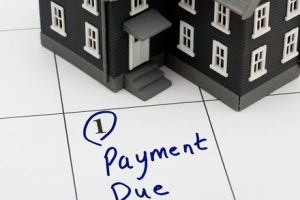Bankruptcy And Mortgage Modifications

Illinois is second only to New Jersey in terms of underwater mortgages. When the loan balance exceeds the home’s value, refinancing is typically not an option. So, distressed homeowners in these circumstances must often turn to a lender-offered mortgage modification for relief. Despite the rosy success stories on bank websites, the mortgage modification saga rarely has a happy ending for borrowers.
HAMP and other programs may have government names, but they are essentially bank-sponsored repayment plans. As such, the banks often turn away applicants on hyper-technical grounds, such as a loan-to-value (LTV) ratio that is a few percentage points off the mark or a trial payment that is one or two days late. Furthermore, even if bank approves the modification, payment relief may not be forthcoming. Most modification plans are essentially deferrals instead of principal reduction programs; in fact, in many cases, the monthly payment under a modified mortgage may actually increase.
Because of these shortcomings, and others like them, Chapter 13 bankruptcy is often a better option for distressed homeowners in Illinois and Indiana.
Repayment Plan
Basically, mortgage modifications are designed to allow borrowers to erase delinquent amounts over time. Chapter 13 repayment does essentially the same thing. The main difference is that in a bankruptcy, there is a neutral judge overseeing the process and an experienced lawyer in your corner.
Chapter 13 debtors consolidate all their past-due bills, including delinquent mortgage payments, and pay them off in monthly installments spread out over either three or five years. During the repayment period, federal law prohibits banks and other lenders from taking any adverse action against debtors, at least in most cases. In other words, you dictate the repayment terms and the bank has to like it.
Qualification for Modification
As mentioned earlier, banks are anxious to reject most mortgage modification applications and will cite almost any reason for such a move. But also as mentioned earlier, in bankruptcy, a neutral judge makes the rules instead of a bank that’s only interested in money.
Once the home and the loan are placed in bankruptcy, judges order most disputes to mediation. In this forum, the bank has a duty to negotiate in good faith. Therefore, to support a rejection, the bank must have a better reason than a missing W-2 or some other minute detail. As a result, over 70 percent of modification disputes are successfully resolved in bankruptcy court.
A Better Offer?
There is even more good news. Principal-reduction plans are available, but they are hard to obtain. First, there must generally be evidence of fraud, and second, banks are generally hesitant to give out principal reductions, because such plans essentially take money out of their pockets.
It is not easy to prove fraud in the mortgage application or home-buying process, because mortgage brokers and other professionals are smart, and they know how to induce customers into certain loan arrangements without using words like “promise” or “guarantee.” But lawyers are smart too, and they know how to find evidence of fraud and how to leverage it during mediation or trial.
Get Your Fresh Start
Chapter 13 bankruptcy lets you stay in your home while you catch up on delinquent payments. For prompt assistance in this area, contact an experienced bankruptcy lawyer in Chicago from the Bentz Holguin Law Firm, LLC. Convenient payment plans are available.
Resource:
http://www.realtytrac.com/news/foreclosure-trends/q1-2016-u-s-home-equity-and-underwater-report/


